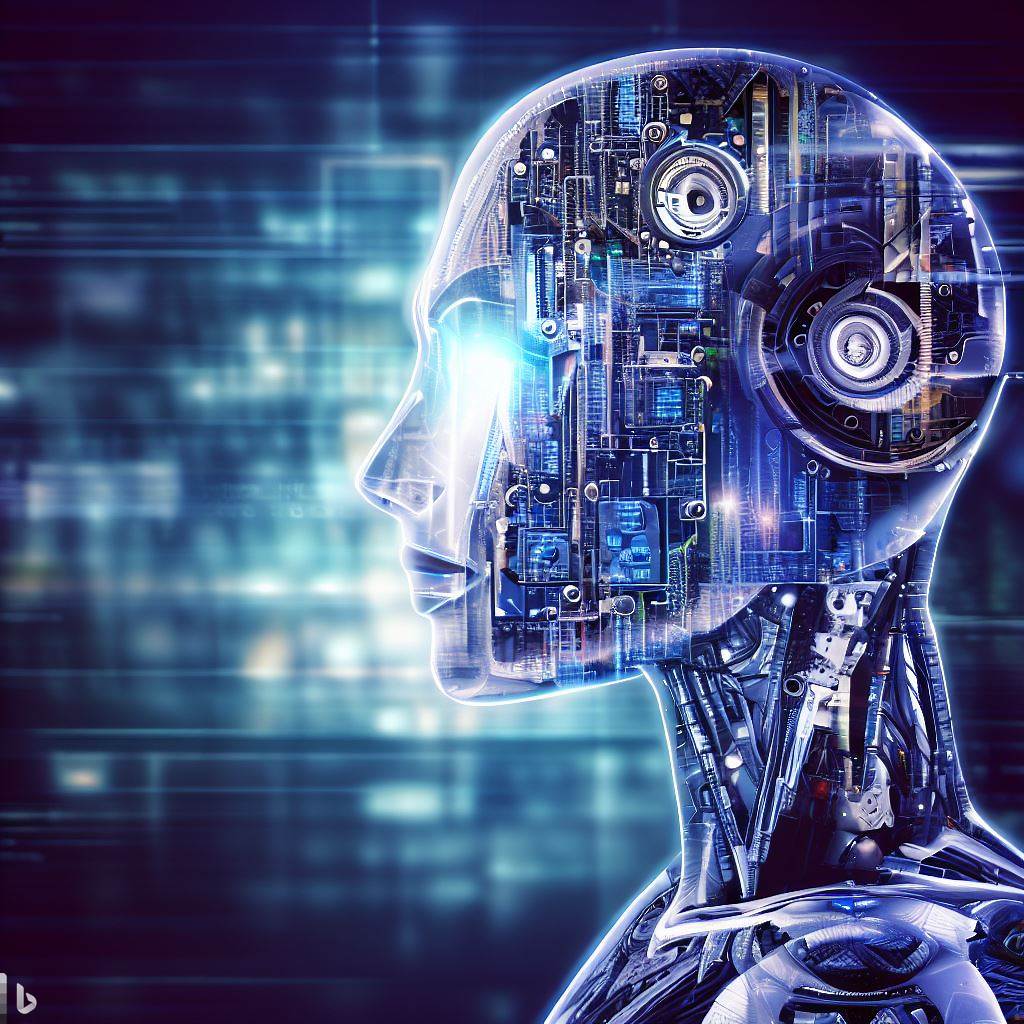
Artificial Intelligence, commonly abbreviated as AI, is a rapidly growing technology that enables machines to perform tasks that would typically require human intelligence, such as speech recognition, decision making, and language translation. The importance of AI lies in its ability to enhance the efficiency and effectiveness of various industries. This technology has the potential to revolutionize healthcare, finance, retail, and transportation, to mention a few. The significance of AI also lies in its ability to accelerate scientific research and development in areas such as climate change, drug discovery, and genetics. Furthermore, AI can contribute significantly to solving global challenges, such as poverty, unemployment, and food scarcity. As AI continues to evolve and integrate into various industries, it is becoming a necessary existence.
Along with its increasing prevalence, advancements in AI technology are also having significant impacts on society. AI systems are revolutionizing industries such as healthcare, finance, and transportation by improving efficiency, accuracy, and decision-making. However, there are also concerns about the potential negative consequences of AI, such as job displacement and the perpetuation of human biases. Additionally, there is ongoing debate about the ethical implications of AI, including issues related to privacy, security, and accountability. As AI continues to rapidly evolve, it will be important for society to carefully consider both the benefits and risks associated with these technologies and to establish responsible frameworks for their development and use.
The future of employment with AI is both promising and concerning. While AI has the potential to create new job opportunities, it also poses a threat of replacing human labor in many sectors. Automation and machine learning are rapidly evolving, which could lead to the displacement of a significant portion of the workforce. Additionally, AI is often able to perform tasks more efficiently and accurately than humans, which raises questions about the necessary skills and training required for future job seekers. However, technological advancements have always resulted in the creation of new job sectors, and AI is no exception. The challenge is to adapt to these technological changes by equipping future workers with the appropriate training and education that aligns with the needs of a rapidly changing job market.
One of the most pressing challenges that AI presents is the ethical implications of its development and usage. While AI has the potential to revolutionize practically every aspect of modern life, it also raises questions about privacy, security, and the role of humans in decision-making. One significant concern is the potential for AI to exacerbate existing inequalities and biases. For example, AI systems that rely on data may unintentionally discriminate against certain groups if that data contains implicit biases. Additionally, AI's ability to simulate human conversation and understanding raises concerns about deception and the ethical implications of impersonating humans. Therefore, AI developers and users must consider these concerns while ensuring that AI is developed and used in a way that aligns with ethical and moral principles.
The use of AI in the healthcare industry has been widely researched and tested, and it has been concluded that AI can significantly benefit healthcare and improve patient outcomes. One of the most prominent applications of AI in healthcare is predicting and diagnosing diseases based on patient data analysis. AI algorithms can analyze vast amounts of medical data from different sources, such as medical records and digital imaging, to identify early signs of diseases and improve accuracy in diagnosis. Additionally, AI can also be used to predict the likelihood of readmission, which can help healthcare providers to develop personalized strategies for patients and reduce the chances of rehospitalization. AI can also assist healthcare professionals in developing personalized treatment plans and recommending medication dosages, based on patient history, biology, and past treatment outcome. Ultimately, the use of AI in healthcare can enhance the quality of care, reduce medical errors, and improve patient outcomes.
The role of AI in education and personalized learning is rapidly becoming a vital aspect of academic systems. AI has revolutionized the learning process, making it more accessible and adaptive to student abilities. Through machine learning, AI systems can analyze student performance data, assess individual needs and provide tailored feedback to improve the learning outcomes. This personalized learning approach ensures that students receive appropriate guidance and support, leading to better engagement, retention and academic success. Additionally, AI-powered chatbots and virtual assistants can provide real-time assistance to students, reducing the administrative burden on teachers and enabling them to focus more on teaching. Furthermore, AI can aid in providing students with an immersive learning experience by using intelligent systems to create interactive, dynamic and engaging learning content. As AI continues to advance, it has the potential to revolutionize the education sector further, creating improved and personalized learning opportunities for all students
Artificial intelligence (AI) has immense potential in the domain of environmental conservation and sustainability. With advancements in AI, it has become easier to track and control carbon emissions as well as reduce waste management. For example, AI can optimize energy consumption in buildings through the analysis of usage patterns, weather forecasts, and real-time data. It can also aid in water conservation by identifying areas with excessive water use and suggesting measures to reduce it. Moreover, AI can facilitate sustainable waste management by identifying recyclable materials and minimizing the volume of waste that ends up in landfills. Thus, AI has the potential to transform the way we interact with our environment, making it more sustainable and enabling us to reduce our carbon footprint.
The integration of AI in everyday life holds vast potential for societal progress. From autonomous cars to virtual assistants, AI has already begun to revolutionize the way we live. As the technology continues to advance, we can expect AI to generate further progress in areas like healthcare, education, and logistics. For instance, AI has the potential to help us diagnose diseases in their early stages, personalize learning experiences to suit each student's individual needs, and optimize supply chains to reduce waste and improve efficiency. But to realize this potential, we must also address the potential risks and challenges associated with AI, such as job displacement and privacy concerns. Therefore, it is essential that we approach the integration of AI in everyday life with a well-informed and thoughtful perspective.
About the Creator
Saloni Patidar
hey:)






Comments
Saloni Patidar is not accepting comments at the moment
Want to show your support? Send them a one-off tip.